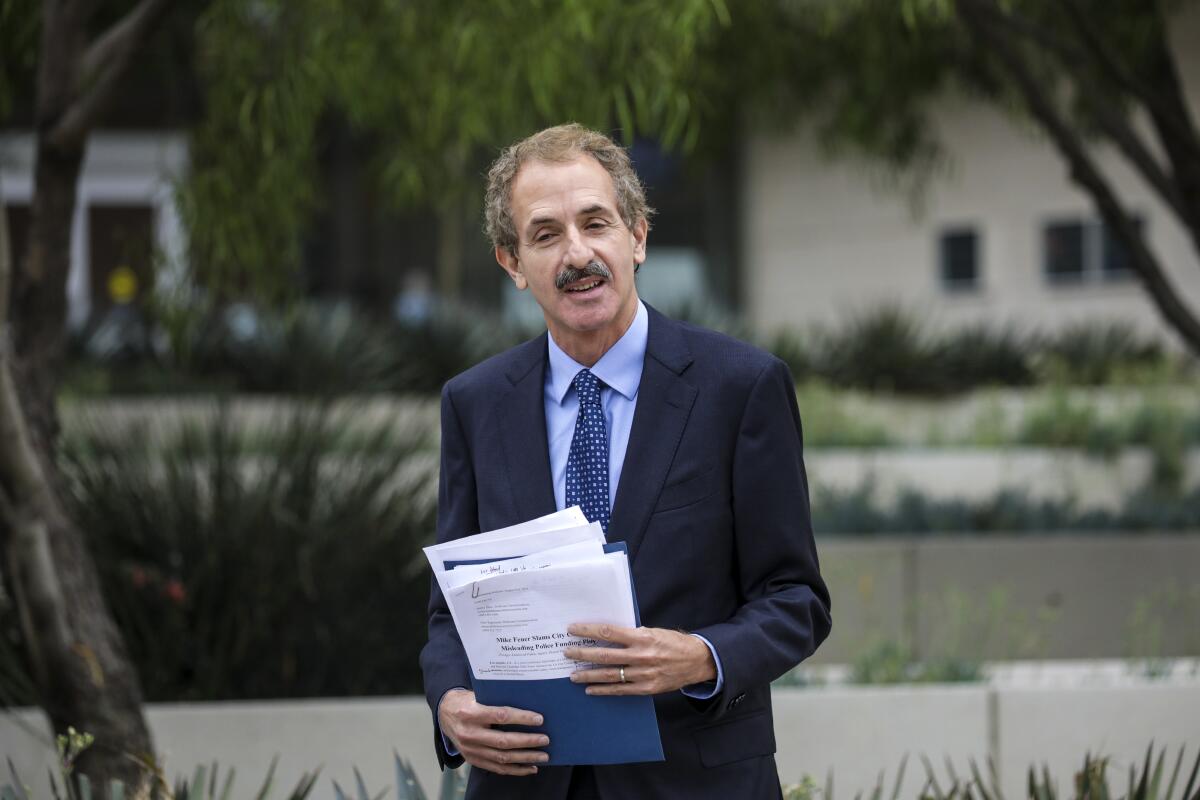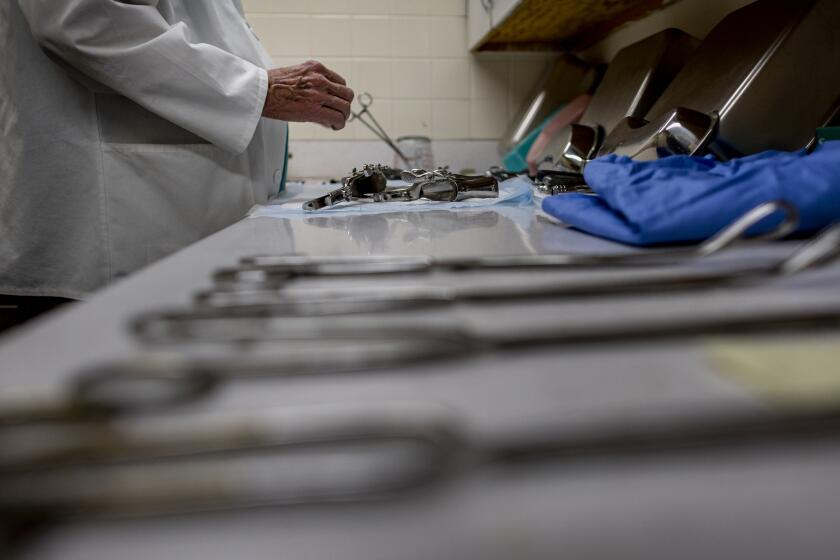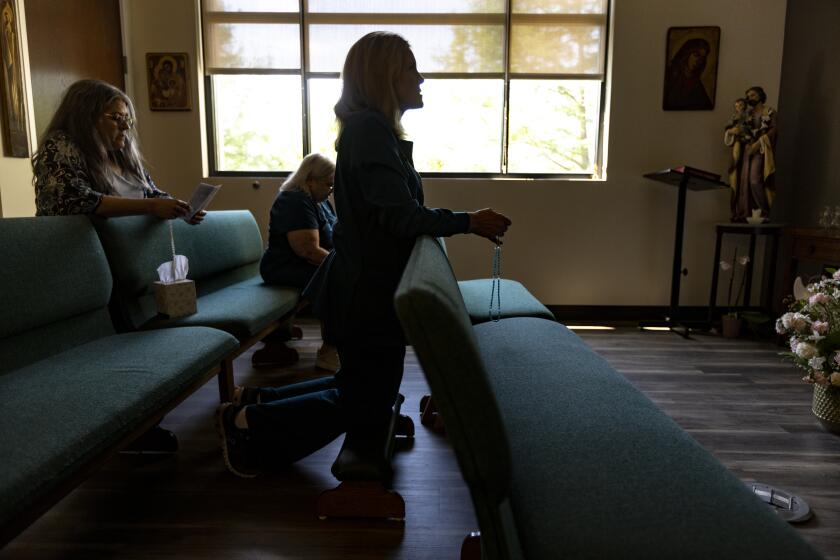L.A. City Council approves law targeting pregnancy centers that mislead on abortion

- Share via
The Los Angeles City Council approved an ordinance Tuesday that prohibits any crisis pregnancy center from misrepresenting the health services it performs, including abortion, and provides individuals legal recourse if they are misled.
The law, introduced by City Atty. Mike Feuer, allows the city to fine a pregnancy center up to $10,000 if it is caught falsely advertising the services it provides, such as prenatal care, abortions or emergency contraceptives. Individuals who are misled by these centers can sue and seek damages under the new law, which takes effect immediately via an urgency clause.
The council approved the ordinance, originally introduced in August, with an 11-0 vote. Councilmembers Kevin de León and Gil Cedillo, who continue to face calls to step down due to them participating in a racist closed-door conversation about council colleagues, did not attend Tuesday’s meeting.
Democrats test out the idea that access to abortions can help them win over Latino voters.
Some crisis pregnancy centers have been known to attract women who are seeking an abortion, and are instead met with efforts to dissuade them from terminating their pregnancies, Feuer said during Tuesday’s council meeting.
“We all know that women confronting this difficult, sensitive, personal question, they have not a second to lose — every moment counts,” Feuer said.
There are at least five crisis pregnancy centers in Los Angeles, he said.
The measure largely responds to the Supreme Court’s decision to overturn Roe vs. Wade, which triggered a wave of states banning abortions and has drawn thousands to other states that remain havens for reproductive rights, such as California.
A draft of the ordinance cited a data analysis by the UCLA Law Center on Reproductive Health, Law, and Policy that found that the court’s decision would bring between 8,000 and 16,100 more people to California for abortion care each year, and that between 4,700 and 9,400 of those would come to Los Angeles County.
“The Future of Abortion” is a series of stories about the state of abortion is it is challenged in America.
While the law applies to any business offering pregnancy-related care, it is largely aimed at crisis pregnancy centers, which are often religiously affiliated and opposed to abortion. The crisis centers are commonly near or otherwise resemble reproductive health clinics and often deceive people by falsely advertising full reproductive care, including abortion, according to the California attorney general’s office.
Many centers are staffed by untrained or unlicensed volunteers and employees, resulting in incomplete or inaccurate information that limits people from making grounded and timely choices about their reproductive care, according to the Guttmacher Institute, a research group that supports abortion rights.
Those who seek care at crisis pregnancy centers are often in distress, and they tend to be disproportionately young, poorly educated or poor, according to the Guttmacher Institute.
One study by researchers at the University of North Carolina found that nearly 30% of women who visited a crisis pregnancy center were significantly less likely to have an abortion.
There are more than 2,500 pregnancy centers across the country, including 200 in Texas. With Roe vs. Wade expected to fall, those numbers are poised to grow.
Other states continue to pour tens of millions of taxpayer dollars into the pregnancy centers, according to an analysis by the Associated Press.
Although the centers are also known to provide young mothers with car seats, strollers and other childcare items, critics say the support they offer falls short.
Dr. Bhavik Kumar, a staff physician at the Planned Parenthood Center for Choice in Houston, where such centers are more common and are funded by the state, previously told The Times that the crisis pregnancy centers don’t provide enough financial support or address the many other reasons that women seek abortions.
“Simply providing diapers and baby clothes is not going to make this go away,” Kumar said. “This is years of caring for people and probably the children they have at home.”
Times staff writer Alexandra E. Petri contributed to this report.
More to Read
Sign up for Essential California
The most important California stories and recommendations in your inbox every morning.
You may occasionally receive promotional content from the Los Angeles Times.














